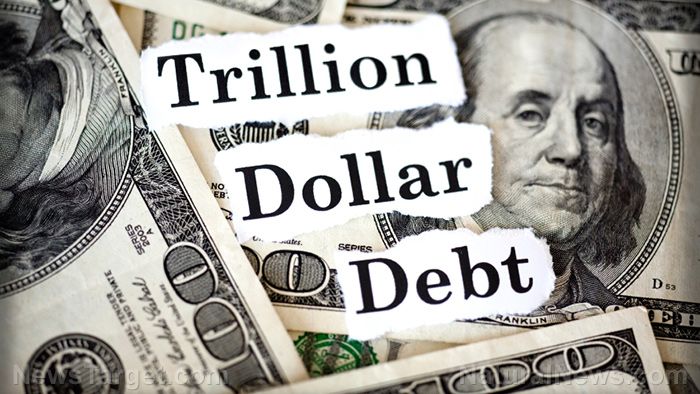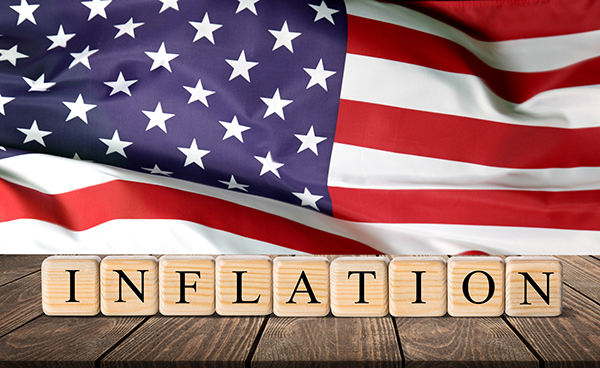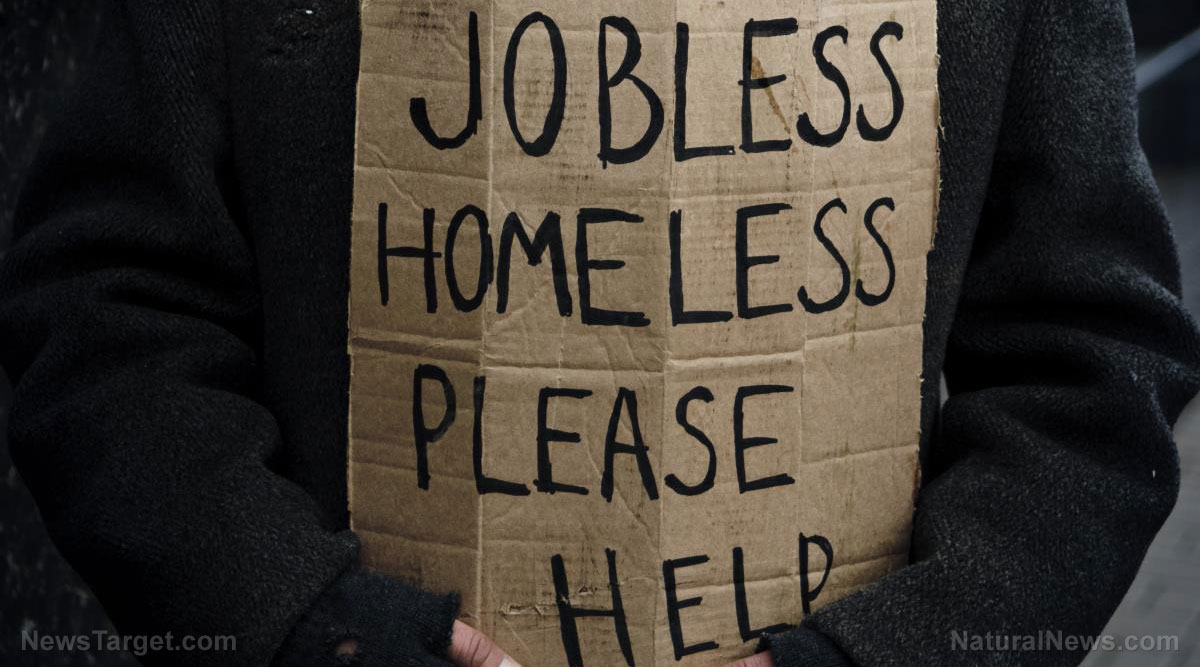6 out of 10 Americans still living paycheck to paycheck despite spending cutbacks
03/06/2023 / By Oliver Young

Americans are beginning to realize that inflation is now part of their everyday lives. In 2022, consumers did not spend as much as they did a year ago – giving their budgets some breathing room.
According to a recent report, the number of Americans living paycheck to paycheck fell to 60 percent in January. That’s down from 64 percent a year earlier, suggesting that last year’s spending cutbacks have improved the financial situations of some consumers.
“The number of people living paycheck to paycheck today is reminiscent of the early days of the pandemic and it has become the dominant lifestyle across income brackets,” Anuj Nayar, financial health officer for LendingClub, said in March last year.
Based on LendingClub’s data, 65.7 percent of Americans were living paycheck to paycheck in early 2020.
LendingClub, a financial services company based in San Francisco, California, defines living paycheck to paycheck as “devoting all of one’s salary to expenses with little to nothing left over at the end of the month.”
Nayar thinks American consumers have already adjusted to the economic situation.
“Consumers have accepted that inflation is part of their everyday lives and they are actively making behavior changes, especially during the 2022 holiday shopping season, to adjust their spending and better manage their cash flow,” said Nayar.
But that doesn’t tell the whole story.
More Americans use credit cards to make ends meet
To make ends meet as prices increase, more Americans are leaning on credit cards.
At the end of 2022, credit card debt hit a record $930.6 billion, an 18.5 percent spike from a year earlier. That’s a $46 billion increase in credit card balances from the prior quarter and up an alarming $57 billion over the same period in 2018. The average credit card balance also rose to $5,805. These figures are based on the latest report by TransUnion.
Credit card debt surged at the fastest pace in 20 years during the second quarter of 2022.
The Federal Reserve Bank of New York reported that credit card debt held by U.S. households surged by 13 percent on an annualized basis in the second quarter. A study by Wells Fargo found that Americans also rely on credit card rewards to offset everyday expenses.
“When it comes to credit card spending over the past couple of years, we have seen categories shift on where people are spending their money and right now our top categories are grocery and gas,” said Krista Phillips, Wells Fargo executive vice president and head of branded cards and markets.
Delinquency rates for credit cards also rose to 5.32 percent, up from 5.16 percent from the previous quarter. Delinquency rates account for the portion of payments that is late by 90 days or more. (Related: Inflation forcing Americans to rely on credit cards for daily expenses.)
“The data also show that transitions into delinquency among credit card borrowers have steadily risen since 2016, notably among younger borrowers,” said Wilbert Van Der Klaauw, senior vice president at the New York Fed.
The youngest group of American credit card holders (aged 18 to 29) suffers the highest delinquency rate of 9.36 percent. That’s 76 percent higher than the total average credit card delinquency rate.
Older Americans (aged 50 and above) have delinquency rates below five percent, which tends to track with their increased wealth compared to younger generations.
Total household debt also increased by 2.4 percent to $16.9 trillion in the fourth quarter of last year, according to the New York Fed.
Visit DebtCollapse.com for more news about credit card debt hitting record numbers due to inflation.
Watch this video about how inflation impacts the life of Americans.
This video is from Worldview Report channel on Brighteon.com.
More related stories:
More Americans are living paycheck to paycheck as inflation persists.
Nearly two-thirds of Americans are now living paycheck to paycheck amid inflation crisis.
Most Americans are ONE paycheck away from poverty — you can’t prep when you’re broke.
Sources include:
Submit a correction >>
Tagged Under:
Americans, Bubble, Collapse, credit card, credit card spending, debt bomb, debt collapse, delinquency rate, economic riot, finance riot, household debt, LendingClub, market crash, money supply, pensions, risk, spending cutbacks, TransUnion, Wells Fargo
This article may contain statements that reflect the opinion of the author
RECENT NEWS & ARTICLES
COPYRIGHT © 2017 PENSIONS.NEWS
All content posted on this site is protected under Free Speech. Pensions.news is not responsible for content written by contributing authors. The information on this site is provided for educational and entertainment purposes only. It is not intended as a substitute for professional advice of any kind. Pensions.news assumes no responsibility for the use or misuse of this material. All trademarks, registered trademarks and service marks mentioned on this site are the property of their respective owners.




















